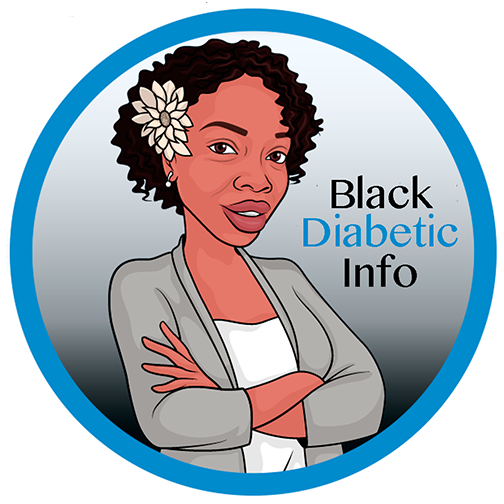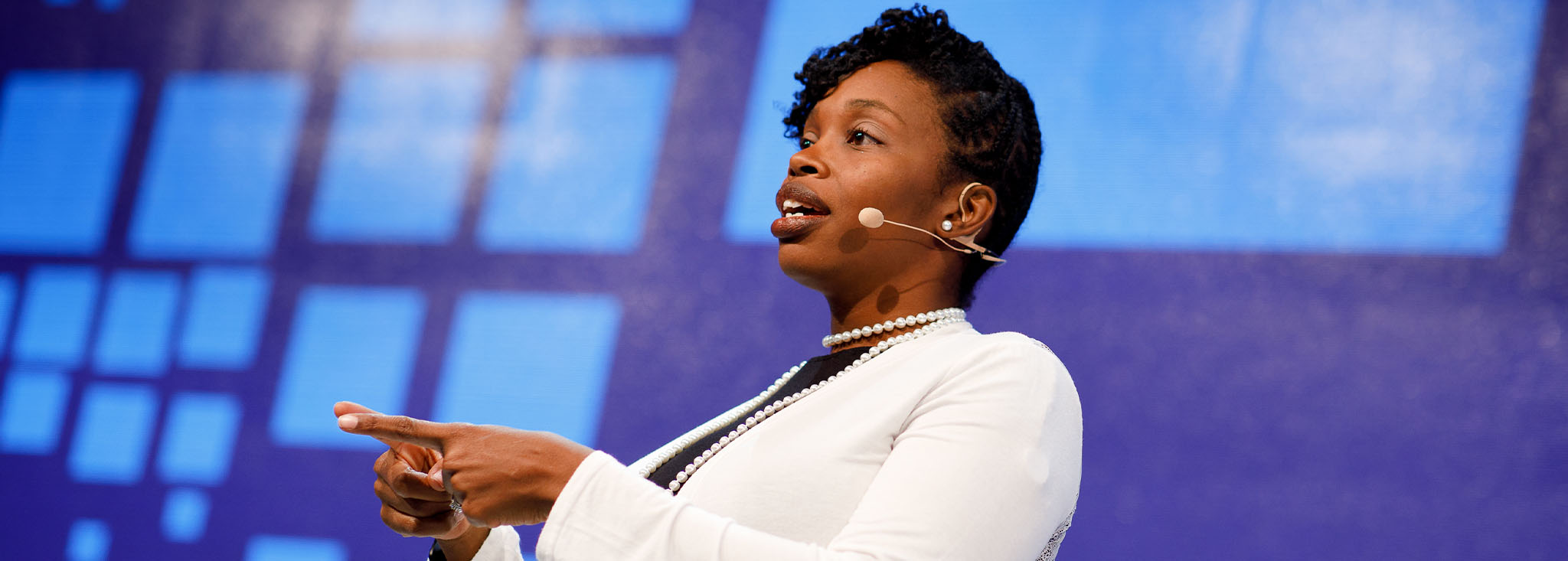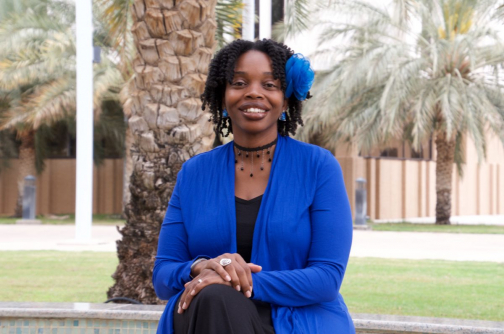Learning about Black Diabetic Info with Phyllisa Deroze
Phyllisa Deroze, Ph.D., is the founder of Black Diabetic Info and Diagnosed Not Defeated, where her mission is to provide culturally-competent, personal and professional information about diabetes in Black communities. Since 2011, Dr. Deroze has been living with type 2 diabetes and travels around the world as a global diabetes patient advocate. Dr. Deroze chatted with the Beyond Type 2 team about her diagnosis story, Black Diabetic Info, and how she got involved with global diabetes advocacy. Beyond Type 2 has also featured a couple of pieces written by Dr. Deroze such as: What Nobody Told Me about Accepting a Type 2 Diabetes Diagnosis and I Didn’t Beat Type 2 Diabetes, I Fight with It. Read our chat with her below.
When were you diagnosed with Type 2 diabetes and what was your reaction? Does it run in your family?
I was diagnosed with type 2 diabetes on February 15, 2011. My immediate response was shock and gratitude. I was shocked because I had visited my primary physician twice before going to the ER where I was informed that I had diabetes, but I was also grateful because I knew something was killing me and having a diagnosis finally meant that I knew what it was.
My blood sugar was 593 when I entered the ER and I had passed out in my bathtub the night before on Valentine’s Day. I had blurred vision, tingling in my hands and feet, frequent thirst and urination and a yeast infection. By the time a co-worker picked me from my primary physician’s office and drove me to the ER. I was going into a diabetic coma. My diagnosis was traumatic and to make things worse, two months later, I lost my home in a tornado.
In regards to my family history, I get asked that often and the answer is no. In my immediate family, I am still the only person with diabetes. I recently had one uncle develop it and there are a few people with diabetes in my extended family.
Wow, that’s quite a diagnosis story! How old were you at the time? How long did it take your vision to recover?
I was 31 years old. I didn’t know type 2 diabetes happened to people in their 30s when I was diagnosed. I thought it was something you got when you were a senior citizen, so I felt alone for a while. My vision is fine now. Well, I’ve been wearing eyeglasses since I was 10 years old and I need Lasik, so it’s not perfect, but it is back to my normal. It took about six months for my vision to be restored completely.
Can you describe your lifestyle before your diagnosis?
I was working out five days a week like a machine. I started a health journey a half-decade before I was diagnosed and had lost nearly 50 lbs in the process. If you ask me and my closest friends, I was the healthiest one in the group when I was diagnosed. I loved traveling as well and would go as often as my time and money would allow. I was a very social person. I mention that because diabetes affected each of these things for me.
How so? Can you talk more about that?
Sure. I still haven’t gotten back to working out five days week like a machine although that desire is still there. I do what I can, which is a range between 3-5 times per week, but my drive is dampened every time I am in a groove and my blood sugar drops in the middle of a workout and I have to correct it. After the 15-minute break to bring my blood sugar up, I’m ready to go home and be in a safe space. The first time my blood sugar dropped at the gym, it was scary and I think I carry a certain level of anxiety about it still to this day. Although, I don’t let that stop me completely from working out. I now prefer 5k races and I completed my 40th one this year for my 40th birthday.
I still love to travel and do quite a bit of it as a global diabetes advocate. I find that diabetes is best managed when I have a routine and traveling often means being off-balance in some way. However, I would never trade the excitement and knowledge gained from traveling for anything. When it comes to socializing, I’m just not the person I was before I was diagnosed. I used to host house parties often and attended gatherings regularly. Nowadays I worry about finding enough low carb foods or snacks and if the timing fits into my meal schedule. Socializing is more complicated, and I find myself skipping events that I wouldn’t have previously.
You have experience managing diabetes with and without medication. What is the difference for you between being on medication versus managing diabetes with diet and exercise?
Within nine months of my diagnosis, I was med-free and continued to manage diabetes for more than three years with only diet and exercise. Over the eight years, I’ve managed diabetes with insulin a few times, oral meds and injectables. I want to be clear about something, I don’t ascribe to management hierarchies because I think people should do whatever they need to do to keep their A1C within a healthy range. Managing diabetes without medication works for some people, it works for others for a certain period of time, and there are some people who won’t manage without medication.
No matter the management style, I’ve always checked my blood sugar often because knowing the level of my blood sugar before eating helps me make smart choices. I was stricter about every single carb that entered my mouth when I didn’t take medication. For example, I remember the first diabetes ice cream event on social media day after I was diagnosed. I happily bought a vanilla cone, bolused for it and uploaded my picture to social media. The next year, however, my way to bolus was an hour workout. When the day rolled around I was like there’s no way I’m spending an extra hour on the treadmill just to join the craze. That’s when I realized that management styles can vary not only from person to person, but they can vary for the same person at different points in that person’s life. When I was med-free I kept a tight schedule and I didn’t want anything to throw it off. I ate at the same time every day and each meal contained roughly the same amount of carbs. Even in social settings, I didn’t deviate.
Nowadays, with medication, I have the room to sway just a little bit and it’s important for me at this moment in time. As a mother of a toddler, I am often eating a spoonful of potatoes, cereal, mac and cheese, biting a sandwich, or nibbling on something else just to demonstrate how delicious it is in an effort to convince my daughter to try it. At the end of the day, I need my A1C to be in a healthy range by whatever means will keep me sane.
 Let’s switch gears—tell us about your blog, Diagnosed Not Defeated and your website Black Diabetic Info.
Let’s switch gears—tell us about your blog, Diagnosed Not Defeated and your website Black Diabetic Info.
I started my blog from the hospital during the week of my diagnosis, mainly because I wanted my friends and family to know what happened to me. I realized that I couldn’t explain it to everybody individually over the phone because I didn’t have the emotional stamina to that. Besides, they had a million questions and I had a million and one of my own. So, I wrote my first blog post explaining what happened to me and told my friends to read it.
I started Black Diabetic Info a year later because I realized in that year that most of the information about African Americans and diabetes-focused were scare tactics. When it came to risk factors of type 2 diabetes and African Americans, the information made me feel as though there was something inheritably wrong with me. I knew that it wasn’t my skin color that made me susceptible, but other environmental factors. I wanted to read the information that unpacked those general statements and discussed communities in food deserts, limited access to fresh produce, the impact of crime on neighborhood parks and recreation. I needed a place to go where I could see the smiling face of someone living with type 2 diabetes, not dying from it. I needed to learn about diabetes management without sifting through grim statistics. The purpose of my blog and my website is to provide that place.
Is that how you got involved with diabetes advocacy?
Well, you might be surprised to know that I blogged under an alias for six years. I, too, was affected by type 2 diabetes stigma and was fearful and letting people know that I had diabetes. I was worried about employment discrimination and a host of other things. Eventually, however, I kept seeing the need for my online presence to blossom and I wanted to be connected to other advocates in a way that I couldn’t be anonymous. So, I became a global diabetes advocate slowly and organically. I found the DOC (Diabetes Online Community) through the DSMA Blogtalk Radio, then Twitter, and later I was invited to a few meetups. I also wanted to bring the quality information that I gained online to my community in South Florida. So, I developed an annual free diabetes education event in Pompano Beach, Florida where I give back to my community. My global vision for Black Diabetic Info began while vacationing in Saint Maarten. I saw a billboard advertising a diabetes conference and thought that it would nice to know how different places educate their communities about diabetes. I am currently a member of the International Diabetes Federation’s Blue Circle Voices and Novo Nordisk’s Disease Experience Expert Panel which allow me to connect with other diabetes advocates across the globe.
Thanks for sharing your experiences with us, I hope you’ll return and share more about your experiences with diabetes living and traveling abroad.
I’d love to do that. Thanks for having me and I look forward to our paths crossing in person one day.






